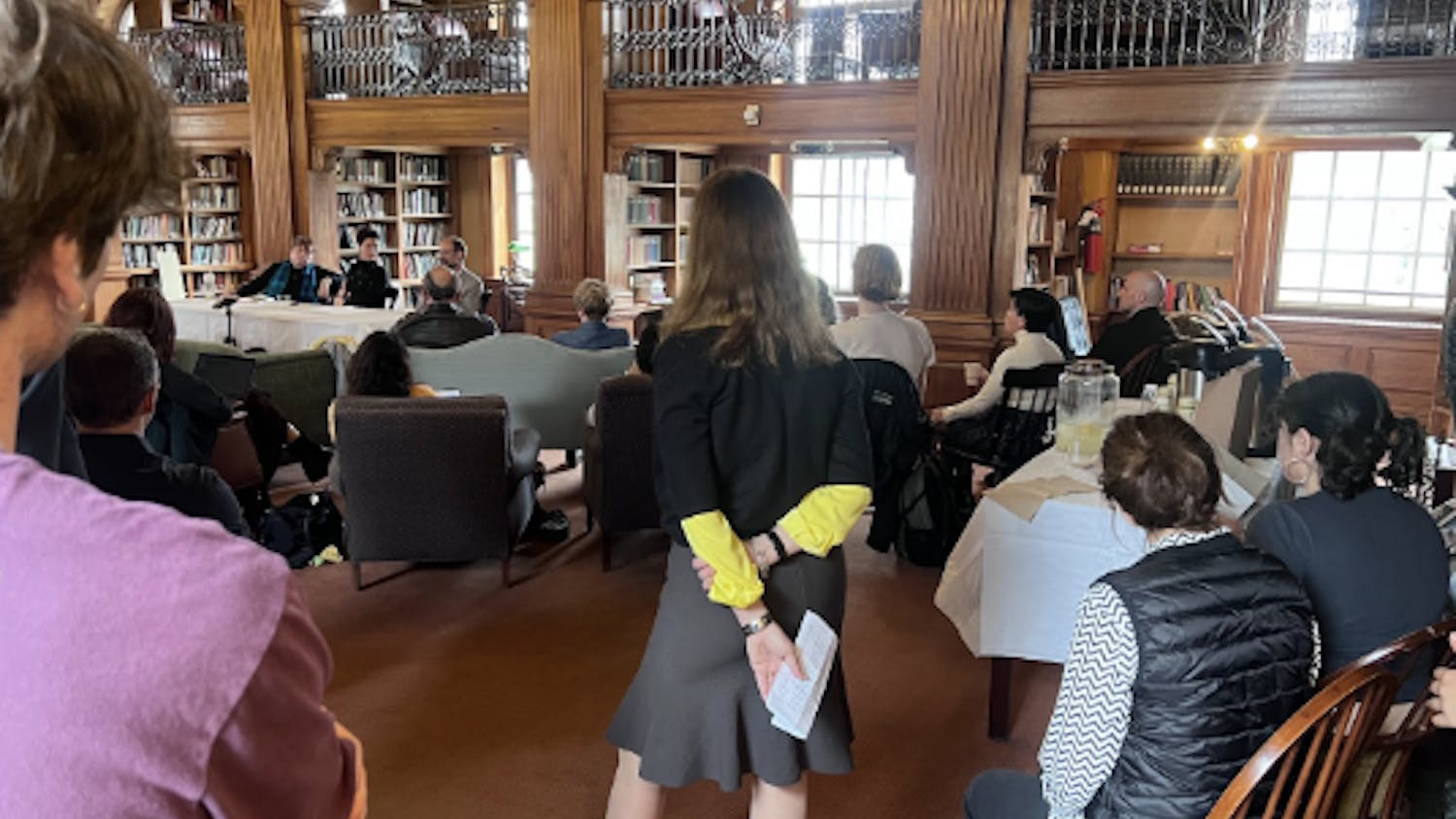Students and local community members are invited to participate in a conversation about culture and adolescence at the Geordie Productions’ presentation of “Jabber” at Spaulding Auditorium in the Hopkins Center for the Arts on Sunday.
The play offers the audience an opportunity to explore the perspective of Fatima, an Egyptian Muslim teenager who moves to a new high school. In addition to the universal adolescent struggles of fitting in and claiming a social identity, Fatima also has to fight a label cast onto her: “Jabber,” a term others use to refer to her due to her decision to wear a hijab, a headscarf worn by Muslim women for religious purposes. Fatima must also learn how to overcome bullying, after finding a graffiti message that says “All Muslims must die.” As an outcast, Fatima is only kept company by Jorah, a fellow student who also faces prejudice as the son of a convict. The two begin to fall in love amidst a battlefield of cultural and social stigma.
Mary Gaetz, the outreach and arts education coordinator for the Hop, coordinates the Hop School Matinee series, a program that works with schools in the Upper Valley to bring students to performances. “Jabber” will be presented on Monday to local students as part of the Hop’s school matinee series.
“Our school series is a way for outside schools to come in and experience the Hopkins Center and expand their world view, expand their knowledge and also to have a really good time,” she said.
Gaetz said the play’s unique take on culture and religion is invaluable for the development of the perspectives of Upper Valley students.
“[Students] are getting their information from outside sources,” Gaetz said. “They’re getting information from relatives that live in a big city, or they’re getting information from their parents but they’re not having their kind of first-hand experience with these things, you know specifically with people who are Muslim in faith.”
She said that a seemingly mundane cultural symbols, such as the hijab, might be noticeably absent in the Upper Valley.
“[Islam] is something that, in our current political and world situation, [something] students are aware of, [but] it’s just not something they get to interact with everyday,”Gaetz said.
Mariana Tayler, the actress who portrays Fatima, said the plot was “a modern ‘Romeo and Juliet.’” She said that its common themes, despite the portrayal of uncommon situations, is what makes the play so far reaching.
“She is told, ‘Don’t go see this bad boy because he has some issues,’” Tayler said. “She’s still somewhat tempted, and these two outcasts, for some type of reason, fall in love. And they have to work through their differences, their values and being a teenager at that age and figuring out what falling in love means and how far you are willing to go according to your values.”
Tayler said that while Fatima herself is Muslim, the idea of struggling between cultures is common among many Americans today, including herself. Tayler, who is the daughter of Colombian immigrants, said that the complexity of her own adjustment is in a different social context than the one her parents participated in.
“I was struggling between these two worlds,” she said. “It’s really hard to find an identity when you’re kind of balancing different sets of values and trying to figure out which ones are the ones that are important to you.”
At Dartmouth, where students come from diverse backgrounds, this search for identity can be prevalent. Vanessa Smiley ’21, a student who grew up in China despite not having an ethnically Chinese background, said she has experienced this phenomenon since arriving in the U.S. and finding that people expected her to understand American cultural references based on her appearance.
“I think the challenge is not so much how others will treat [international students], but how they are to synthesize two contradictory ways of life and two contradictory frames of reference,” Smiley said. “The environment we’re in shapes us, yet people who adhere to these types of backgrounds were also shaped by a previous environment ... So how do they reconcile two ways of life into one sort of unified identity?”
Tayler said that reactions to different cultures can be rooted in fear of differences and what they do not understand. She said she hopes that audiences leave the play challenging themselves to see what prejudices they may hold subconsciously, and how they affect the treatment of other people.
“If you ask questions and you learn more about [your assumptions], you discover that often they’re not true,” she said.
Tayler will be joined onstage by Aris Tyros, who plays Jorah, and David Sklar, who plays Mr. E, a guidance counselor at Fatima and Jorah’s school. “Jabber” will began at 2 p.m. on Sunday. Tickets range from $10 to Dartmouth students to $13 to $23 for the general public. There will be a post-performance discussion with the cast and crew.
Smiley is a member of The Dartmouth.
Correction Appended (Feb. 2, 2018):
A previous version of the Feb. 2 article "'Jabber' will explore converging cultures and adolescence" has been updated to more accurately reflect the event's ticket pricing. The tickets are $10 for Dartmouth students and $13 to $23 for the general public, not $13 to $23 for all attendees.



